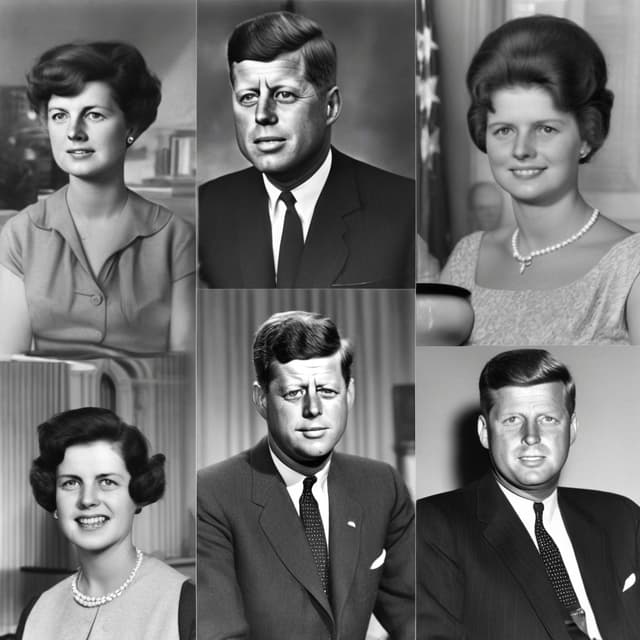
| Key Feature | The absence of the influential Kennedy legacy and cultural impact is a defining characteristic of this alternate reality |
| Divergence Point | The Kennedy family never immigrated from Ireland to the United States |
| Potential Impacts | Cuban Missile Crisis may have played out differently • The Civil Rights Movement could have progressed in a distinct manner • The Space Race may have occurred on a different timeline • The United States may have waited longer, or never had, its first Catholic president |
| Alternate Timeline | The United States did not have the Kennedy political dynasty or leadership of figures like John F. Kennedy |
In this alternate timeline, John F. Kennedy does not exist, as his father Joseph P. Kennedy never emigrated from Ireland to the United States. Without the rise of the influential Kennedy family, the political and cultural landscape of 20th century America developed along a very different trajectory.
The Kennedy family's origins date back to the 1840s, when the family patriarch, Patrick Kennedy, left famine-stricken Ireland for the United States, settling in Boston, Massachusetts. His son Joseph P. Kennedy, Sr. would later become a wealthy businessman and prominent political figure, laying the groundwork for the Kennedy political dynasty.
However, in this alternate reality, the Kennedys never made that original transatlantic journey. Patrick Kennedy and his descendants remained in Ireland, never establishing the family's American roots. As a result, Joseph P. Kennedy, John F. Kennedy, and the rest of the famous political clan simply do not exist in this timeline.
The absence of the Kennedy family has widespread implications for American politics in the 20th century. Without Joseph P. Kennedy's influence and the rise of his sons John, Robert, and Edward, the Democratic Party and national politics lack one of its most powerful and iconic families.
John F. Kennedy, who served as the 35th President of the United States from 1961 to 1963, is a pivotal figure who is simply absent in this alternate reality. His leadership during key events like the Cuban Missile Crisis, his advocacy for the Civil Rights Movement, and his ambitious goals for the Space Race are never realized.
Moreover, the political careers of Robert F. Kennedy and Edward "Ted" Kennedy - both influential Senators and presidential candidates - also never come to fruition. The Kennedy family's massive fundraising capabilities, media savvy, and national popularity are never harnessed to shape the course of American politics.
The election of John F. Kennedy in 1960 marked a historic milestone, as he became the first (and so far only) Catholic president of the United States. His religious faith was a major issue during the campaign, with critics questioning whether he would be beholden to the Catholic Church.
In this alternate timeline, where the Kennedys never arrived in America, the United States may have had to wait much longer, if ever, for its first Catholic president. Without the Kennedy family's political clout and prominence, the prejudices and concerns about a Catholic president may have persisted for decades longer.
Beyond its political implications, the lack of the Kennedy family also means the absence of their immense cultural impact and legacy. The Kennedys were a glamorous, photogenic clan that captivated the American public's imagination, embodying an idealized vision of the American Dream.
John F. Kennedy, in particular, was a charismatic, youthful figure who helped define the image of the modern American presidency. His assassination in 1963 and the subsequent mourning of the nation became a defining moment in the country's collective psyche.
However, in this alternate timeline, the Kennedy mystique, imagery, and cultural resonance never take hold. The American public is deprived of the Kennedys' influence on fashion, media, and the national zeitgeist. Their enduring place in the pantheon of American political and cultural icons is simply never established.